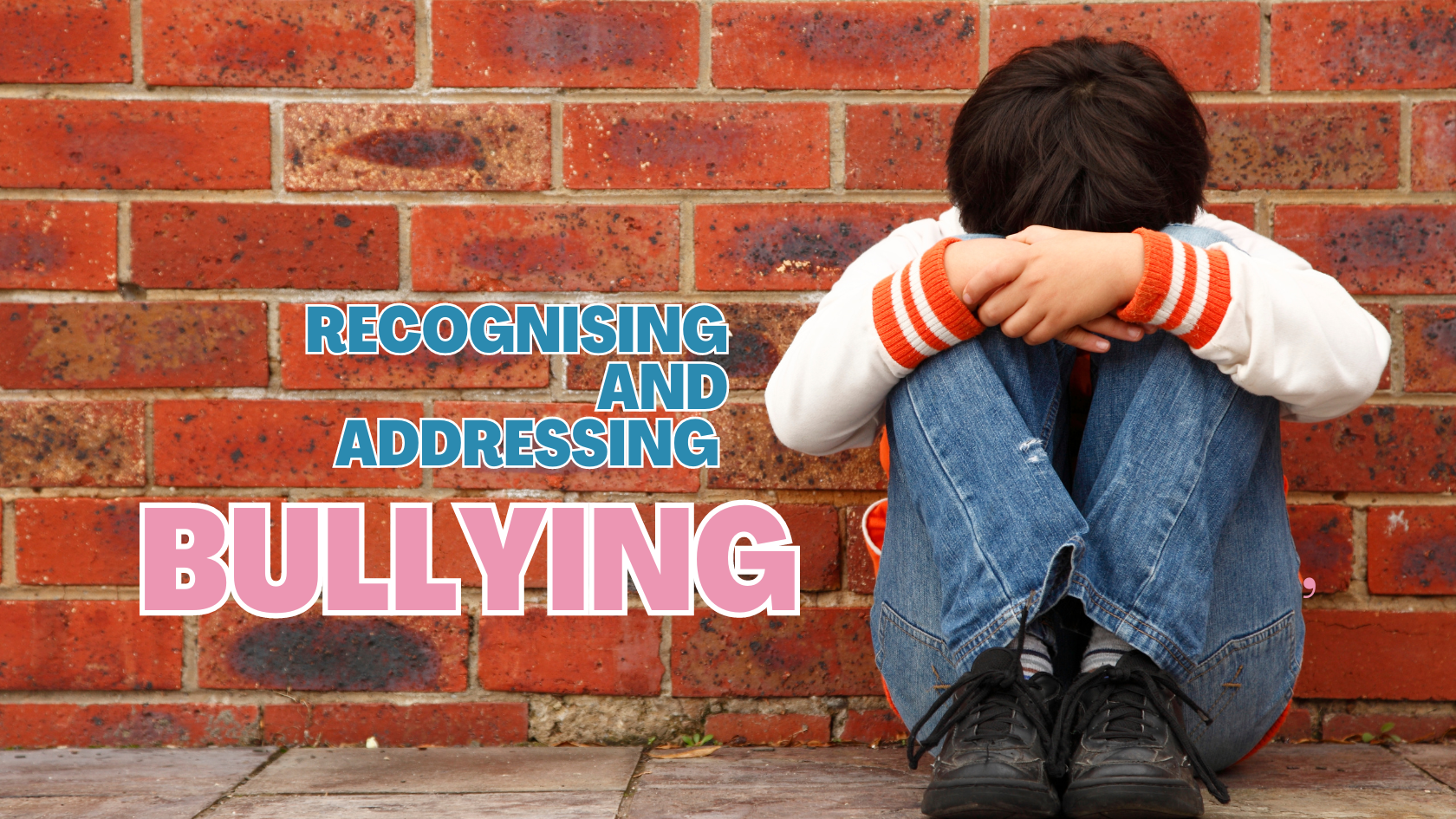Latest From Upschool
- Supporting your Child’s Projects and Research
- Age-Appropriate Expectations
- Why We Need to Rethink Challenging Behaviour
- Navigating the Dynamics of Sibling Relationships
- Creating a Culture of Learning at Home
- Creative and Easy DIY Projects for Parents and Children
- Tips for Working Parents
- Review Educational Apps, Games, and Other Tech Tools for Kids
-
-
No videos yet!
Click on "Watch later" to put videos here
- View all videos
-
-
-
Don't miss new videos
Sign in to see updates from your favourite channels
-
Guest Contributors
Health & Wellbeing (Guest Contributors)
Recognising and Addressing Bullying

Published by: Digital Schools
Recognising and addressing bullying in children is crucial to ensure their physical and emotional well-being. Bullying can have serious and lasting effects on a child's mental health and self-esteem. Here are some steps you can take to recognise and address bullying:
Recognising Bullying:
Understand what bullying is: Bullying involves repeated aggressive behaviour with an imbalance of power. It can be physical, verbal, relational (spreading rumors or exclusion), or cyberbullying (using technology to harass).
Keep communication open: Encourage your child to talk to you about their experiences at school or with peers. Be a good listener and validate their feelings.
Look for signs: Common signs of bullying in children include unexplained injuries, damaged belongings, changes in eating or sleeping habits, declining academic performance, withdrawal from social activities, and mood swings.
Monitor online activity: Pay attention to your child's online behavior, as cyberbullying is becoming increasingly prevalent. Check their social media accounts and messages for signs of harassment or inappropriate content.
Addressing Bullying:
Stay calm and supportive: When your child confides in you about bullying, reassure them that you are there to support them. It's essential that they feel safe and understood.
Document the incidents: Keep a record of bullying incidents, including dates, times, locations, and any witnesses. This documentation can be helpful if you need to involve the school or authorities.
Talk to your child's school: Contact the teacher, school counselor, or principal to report the bullying incidents. Provide them with the information you've documented and ask for their support in addressing the issue.
Teach assertiveness: Help your child develop the skills to respond assertively to bullies, such as making eye contact, using a strong voice, and walking away from the situation when possible.
Promote self-esteem: Encourage your child to participate in activities they enjoy and excel in. Building self-esteem can make them less vulnerable to bullying.
Involve a therapist: If the bullying has had a severe impact on your child's mental health, consider seeking the help of a therapist or counselor who specialises in child and adolescent issues.
Educate your child about online safety: Teach your child about responsible internet use, including not sharing personal information and reporting cyberbullying.
Involve law enforcement if necessary: In cases of severe bullying, threats, or cyberbullying, consider involving local law enforcement to ensure your child's safety.
Promote empathy: Teach your child the importance of empathy and kindness. Encourage them to stand up for others who may be victims of bullying.
Foster resilience: Help your child develop emotional resilience, which can make them better equipped to handle adversity. Support them in learning problem-solving skills and stress management.
Remember that addressing bullying is an ongoing process. It's essential to maintain open communication with your child and monitor their well-being to ensure that the bullying stops and they recover from any emotional scars. Your role as a supportive parent or guardian is crucial in helping your child through these challenging situations.
TAGS
The content by "Digital Schools" which can be found under the "Guest Contributor" category on this platform is produced by Digital Schools PTY LTD. Digital Schools works in partnership with the school as a 3rd party provider to help build and maintain the school website. As well as this, we assist the school by engaging with a range of experts who already provide products and/or services to educational institutions and we work with them to produce and publish information to this website that we think may be relevant, interesting or topical to families within the community.
PLEASE NOTE: The views, opinions and content published by us are that of the "Guest Contributor" and/or publisher (Digital Schools). It should be noted that whilst the publisher and guest contributors are acting with the best intentions and in the best interests of the school and their community, sometimes the content may not necessarily reflect the views of the school. We welcome your feedback. Down the bottom of this page is a feedback form so you can let us know what you think.
NEW TO EXPLORE




